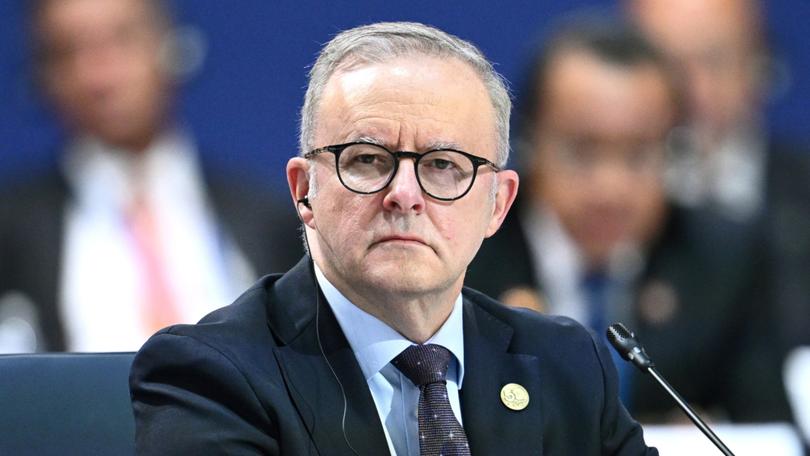Prime Minister Anthony Albanese warns Australia cannot sit on the sidelines of a shifting global economy
Anthony Albanese warns Australia cannot afford to sit on the sidelines of a shifting global economy, defending the need for increased Government intervention as ‘the new competition’, not protectionism.

Anthony Albanese warns Australia cannot afford to sit on the sidelines of a shifting global economy any more, defending the need for increased Government intervention as “the new competition”, not protectionism.
The Prime Minister says if the country does not act with urgency, it will be left behind because other nations are moving.
He will use a major speech on Thursday to outline how global economic changes will shape next month’s Budget and the Government’s plans for the next year and hopeful second term in power.
Sign up to The Nightly's newsletters.
Get the first look at the digital newspaper, curated daily stories and breaking headlines delivered to your inbox.
By continuing you agree to our Terms and Privacy Policy.The speech will also flag that while Australia “cannot go dollar for dollar” with the mammoth US Inflation Reduction Act’s subsidies for renewable energy and transition technology, it is looking for “the most efficient and effective combination of financing facilities and investor incentives” to drive growth and secure greater sovereignty over the nation’s resources and critical minerals.
The budget’s top priority remains helping people with the cost of living, with the $107 billion tax cuts package as its centrepiece.
But Mr Albanese says it must also set the nation up to be economically resilient and secure.
A “fundamental shift in the way nations are structuring their economies” in the wake of the pandemic is a change just as significant as the industrial and information revolutions and happening faster than either, he says.
“We need sharper elbows when it comes to marking out our national interest. And we need to be willing to break with old orthodoxies and pull new levers to advance the national interest,” Mr Albanese will tell the Queensland Press Club.
“Being in the race does not guarantee our success – but sitting it out guarantees failure.”
Other countries are drawing an explicit link between economic security and national security, with governments in the US, European Union, Japan, Korea and Canada acting to boost and protect critical industries such as renewables, technology and electric vehicles.
“All these countries are investing in their industrial base, their manufacturing capability and their economic sovereignty,” Mr Albanese says.
“This is not old-fashioned protectionism or isolationism – it is the new competition.
“In this time of transformative opportunity, our Government will not be an observer or a spectator—we will be a participant, a partner, an investor, and an enabler.”
He is framing his agenda around “a future made in Australia”, promising this pulls together programs the Government has already set in motion, including its National Reconstruction Fund, billions of dollars for solar and hydrogen manufacturing and new skills agreements, along with coming changes to competition rules and universities.
He wants the Government to be proactive and end a “spray and pray” approach to policy that prioritises minimising risk or responding to immediate crises.
This means stepping up and offering taxpayer money or other incentives to lower the risk for investors in new industries.
“We recognise that for Australians to share fully in the rewards, the Government needs to be prepared to use its size, strength, and strategic capacity to absorb some of the risks,” Mr Albanese says.
“Only the Government has the resources to do that; only the Government can connect the threads from across the economy and around our nation.”
Mr Albanese pledges to remain open to good ideas no matter where they came from, saying he wasn’t interested in a one-off agenda but in setting up a framework that could be adapted over time.

